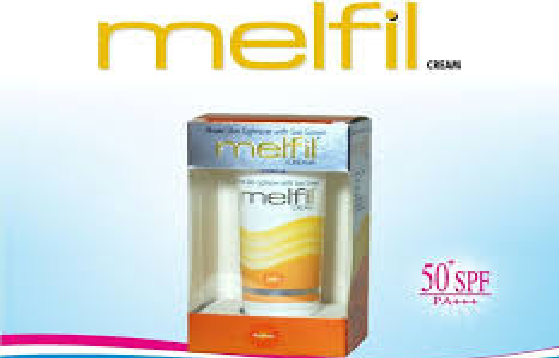
Melfil is a product line that epitomizes innovation in material science, catering to a range of industries with its specialized functionalities. It is commonly associated with microcrystalline cellulose (MCC) derivatives, which are widely recognized for their roles in pharmaceuticals, food production, and other applications demanding high purity and functionality. This article explores the characteristics, applications, and importance of Melfil, highlighting its role in shaping modern industrial practices.
Composition and Characteristics
Melfil is primarily derived from natural cellulose, typically extracted from plant sources. Through a series of refining processes, the cellulose is broken down into microcrystalline particles, resulting in a highly versatile product. Key characteristics of Melfil include:
- High Purity: Melfil is composed of exceptionally pure cellulose, making it suitable for sensitive applications.
- Inert Nature: It is chemically inert, ensuring compatibility with a wide range of substances.
- Excellent Compressibility: The product exhibits superior binding and compressing properties, which are vital in tablet formulation and other applications.
- Versatility: Available in various grades, Melfil can be tailored to specific industrial needs.
- Stability: It offers excellent stability under diverse environmental conditions, maintaining its properties over time.
- Biodegradability: Being derived from natural sources, Melfil is environmentally friendly and biodegradable.
These properties position Melfil as an indispensable material for industries that require high performance and reliability.
Applications of Melfil
Melfil’s versatility and high functionality have enabled its adoption across various industries. Its primary applications include:
1. Pharmaceutical Industry
Melfil is a cornerstone in pharmaceutical manufacturing, where its unique properties address critical production challenges. Key uses include:
- Tablet Formulation: Melfil’s excellent compressibility ensures uniform tablet formation, reducing variability in production.
- Disintegrants: It aids in the rapid breakdown of tablets in the digestive system, improving bioavailability.
- Capsules and Pellets: As a filler and binder, it enhances the structural integrity of capsules and granules.
- Controlled Release Systems: Melfil is integral to designing dosage forms that release active ingredients over extended periods.
2. Food Industry
In the food sector, Melfil serves as a functional additive, contributing to product quality and consistency. Common applications include:
- Texturizing Agent: Improves mouthfeel and texture in processed foods.
- Fat Replacer: Provides a creamy consistency without adding calories, ideal for low-fat products.
- Stabilizer and Thickener: Ensures uniformity in sauces, dressings, and beverages.
- Dietary Fiber Supplement: Enhances the nutritional profile of foods by increasing fiber content.
3. Cosmetics and Personal Care
Melfil’s inert nature and smooth texture make it a valuable ingredient in personal care formulations. Applications include:
- Creams and Lotions: Acts as a thickener and stabilizer, enhancing product stability.
- Powder Products: Improves flow properties and ensures uniform dispersion in makeup.
- Toothpaste: Provides consistency and stability to formulations.
4. Industrial Applications
Beyond pharmaceuticals and food, Melfil is utilized in a variety of technical applications:
- Paper Manufacturing: Acts as a binder and improves paper quality.
- Plastics and Polymers: Serves as a filler, enhancing mechanical properties and reducing costs.
- Adhesives: Improves bond strength and viscosity control in adhesive formulations.
5. Health and Wellness Products
As consumers become more health-conscious, Melfil’s role in dietary supplements and nutraceuticals has grown. It’s commonly used in:
- Fiber Supplements: Provides a natural source of dietary fiber.
- Probiotic and Enzyme Formulations: Enhances the stability and delivery of active ingredients.
Environmental and Sustainability Aspects
Melfil’s production aligns with sustainability goals, as it is derived from renewable resources such as wood pulp. Its biodegradability ensures minimal environmental impact, making it a preferred choice for eco-conscious industries. However, the sourcing of raw materials and the energy-intensive nature of cellulose processing remain areas for improvement. Companies producing Melfil are exploring sustainable forestry practices and energy-efficient technologies to address these challenges.
Innovations and Emerging Applications
The versatility of Melfil continues to drive innovation across industries. Emerging applications include:
- 3D Printing: Melfil is being explored as a bio-based material for additive manufacturing, offering a sustainable alternative to synthetic polymers.
- Biomedical Devices: Its biocompatibility and stability make it suitable for tissue scaffolds and drug delivery systems.
- Sustainable Packaging: Melfil’s biodegradability positions it as a potential replacement for non-biodegradable fillers in packaging materials.
- Nanotechnology: Researchers are investigating Melfil’s potential in developing cellulose nanocrystals and nanofibers for advanced materials.
Challenges and Limitations
Despite its many advantages, Melfil is not without challenges. These include:
- Cost: High production costs can limit its accessibility, especially for small-scale manufacturers.
- Moisture Sensitivity: Melfil’s hygroscopic nature may affect its stability in high-humidity environments.
- Processing Challenges: The need for specialized equipment and expertise can complicate its adoption in some industries.
Efforts to overcome these limitations are crucial for maximizing Melfil’s potential and expanding its market reach.
Conclusion
Melfil represents a remarkable advancement in material science, offering unparalleled functionality and versatility. Its applications span critical industries such as pharmaceuticals, food, cosmetics, and beyond, demonstrating its wide-ranging impact. As sustainability and innovation remain at the forefront of industrial priorities, Melfil’s environmentally friendly profile and adaptability ensure its relevance in the future. Addressing current challenges and exploring emerging applications will further solidify Melfil’s role as a cornerstone in modern manufacturing and product development.





Leave a Reply